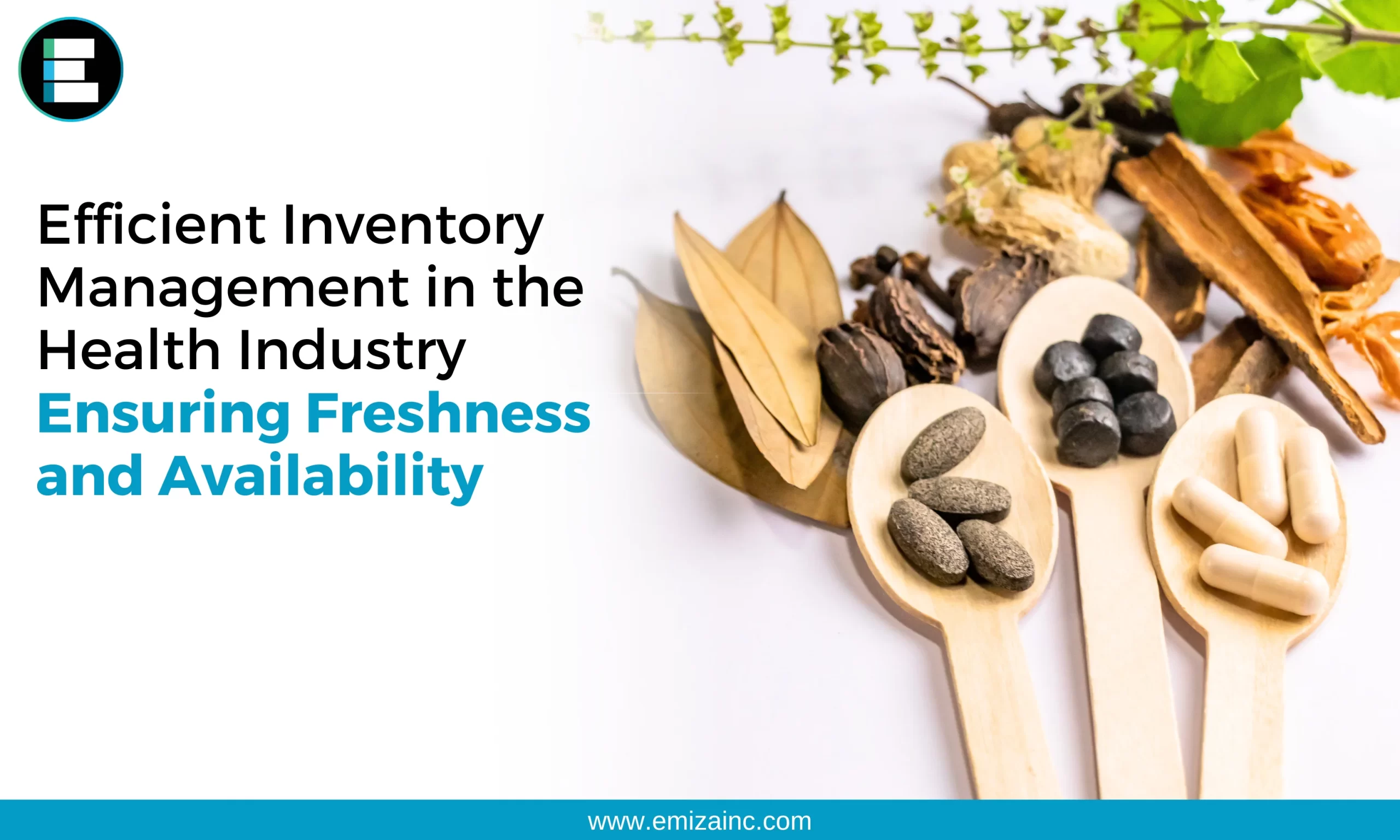Efficient inventory management is a critical component of the healthcare industry, where the availability of medical supplies, pharmaceuticals, and equipment directly impacts patient care, safety, and overall operational effectiveness. In recent years, the healthcare sector has undergone significant transformations driven by technological advancements and changing patient expectations. This has led to both opportunities and challenges in maintaining the freshness and availability of essential healthcare products. In this blog post, we will delve into the challenges faced by the health industry, particularly in prescription fulfilment, temperature-controlled supply chains, and non-prescription-based inventory. Additionally, we will explore various strategies and solutions to streamline inventory management and ensure that healthcare providers can deliver optimal care efficiently.
Challenges around Prescription Fulfilment from Marketplaces and Websites
The rise of online marketplaces and e-commerce platforms has transformed the way patients access healthcare products. While this offers convenience, it also introduces challenges in prescription fulfilment. Ensuring that prescriptions are accurately processed, products are dispensed correctly, and regulatory compliance is maintained becomes crucial. Inaccuracies in prescription fulfilment can lead to patient harm, legal implications, and reputational damage to healthcare providers.
Temperature-Controlled Supply Chain Management
Many healthcare products, especially pharmaceuticals and certain medical devices, require strict temperature control to maintain their efficacy and safety. Managing temperature-controlled supply chains is complex and demanding. Fluctuations in temperature during storage and transportation can render products ineffective or even hazardous. Ensuring proper storage conditions, monitoring temperature-sensitive shipments, and preventing temperature excursions are ongoing challenges.
Non-Prescription-Based and Non-Temperature-Controlled Inventory
Apart from prescription-based items, healthcare facilities also need to manage non-prescription inventory items such as over-the-counter medications, medical supplies, and equipment. These items are essential for day-to-day operations and patient care. Managing such diverse inventory, especially when items have varying shelf lives and storage requirements, presents its own set of challenges.
Streamlining Solutions
To tackle these challenges and ensure the freshness and availability of healthcare products, healthcare providers can implement a range of strategies and solutions:
Implement Best Practices and Automation
By adopting industry best practices and leveraging automation, healthcare facilities can streamline their supply chain and medication distribution processes. Automation reduces the risk of human errors, ensures consistency, and accelerates the flow of products from suppliers to end-users. Automated systems can handle tasks such as order processing, tracking shipments, and updating inventory levels, freeing up staff for more strategic roles.
Asset Tracking with Technology
Utilising advanced technology such as asset tags, barcodes, RFID tags, and NFC tags can significantly enhance inventory management. Asset tags allow for efficient check-in and check-out of medical instruments and equipment. These technologies improve staff efficiency by reducing the time spent searching for items, thus contributing to quicker patient care delivery.
Increased Visibility and Emergency Preparedness
A well-implemented asset tracking system enhances the visibility of medical equipment and supplies within a healthcare facility. This visibility becomes invaluable during emergencies when quick access to critical items can be a matter of life and death. By knowing the exact location and availability of essential resources, healthcare providers can respond swiftly and effectively to urgent situations.
Workflow Efficiency through Automation
Automation not only reduces the likelihood of errors but also streamlines healthcare workflows. For instance, automated prescription processing and dispensing systems can ensure that patients receive the correct medications and dosages. Automated inventory replenishment systems can trigger orders when stock levels fall below a predetermined threshold, preventing stockouts and improving overall efficiency.
Real-time Alerts and Notifications
Real-time alerts and notifications play a crucial role in preventing inventory shortages and ensuring timely restocking. Automated systems can send alerts to relevant staff members when stock levels are low or when a product’s expiration date is approaching. This proactive approach helps healthcare facilities maintain optimal inventory levels and prevent disruptions in patient care.
Effective Supply Management
Implementing a comprehensive supply management system enables healthcare providers to exercise better control over spending and budget discipline. By analysing usage patterns, expiration dates, and demand forecasts, facilities can make informed decisions about procurement and reduce unnecessary costs associated with excess inventory or last-minute purchases.
Investment Protection
Asset tracking goes beyond just inventory management. It also helps protect investments in medical equipment and devices. By tracking maintenance events, usage history, and calibration schedules, healthcare facilities can ensure the longevity and optimal functionality of their equipment. This not only ensures patient safety but also maximises the return on investment in expensive medical technologies.
Emiza’s Comprehensive Capabilities: Transforming Healthcare Inventory Management Challenges
Infrastructure and Equipment Costs:
Emiza’s innovative inventory management system helps healthcare facilities optimize equipment and infrastructure costs.
By tracking usage patterns and demand, facilities can make informed decisions about equipment investments and maintenance schedules.
Talent Shortage:
Emiza’s entire operations are handheld-based for order processing, minimizing errors and optimizing resource utilization. This approach provides a valuable solution to the talent shortage issue in healthcare.
With streamlined processes, healthcare facilities can accomplish more with fewer resources, mitigating the challenges posed by talent shortages in the industry.
Inconsistent Quality of Care:
Emiza’s real-time tracking and monitoring prevent stockouts and expiration of medical supplies, ensuring consistent high-quality care for patients.
Automated alerts and reorder systems guarantee that critical supplies are always available when needed, improving patient outcomes.
Affordability and Accessibility:
Emiza’s data-driven insights help healthcare facilities manage inventory levels efficiently, reducing excess stock and minimizing wastage.
By optimizing inventory, facilities can provide quality care at an affordable cost, improving accessibility to healthcare services.
Data Privacy and Security:
Emiza prioritizes data privacy and security through robust encryption and compliance measures.
Sensitive patient and inventory data remains protected, fostering trust between healthcare providers and patients.
Conclusion
Efficient inventory management stands as a cornerstone in the healthcare sector, where the availability of crucial medical supplies and equipment significantly influences patient care, safety, and operational efficiency. With technological advancements and evolving patient expectations reshaping the healthcare landscape, both opportunities and obstacles emerge in upholding the freshness and accessibility of essential healthcare products.
Incorporating Emiza’s capabilities into the healthcare industry’s inventory management processes can address these challenges effectively, leading to fresher supplies, improved availability, and enhanced patient care. Visit https://emizainc.com/ for more details.



